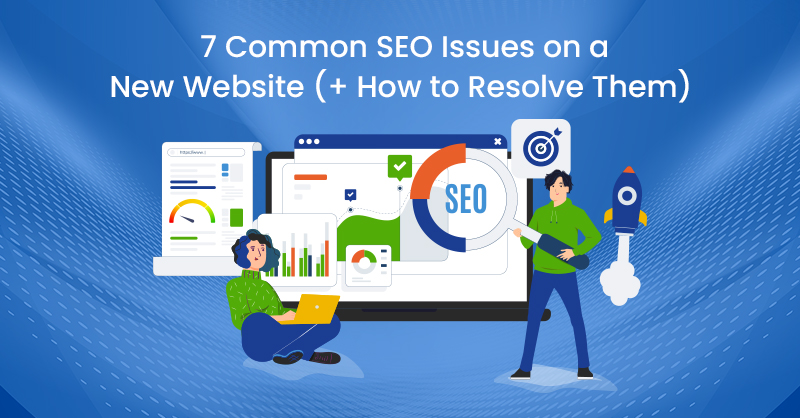The Basics of Search Engine Optimization Today
 Inevitably, no matter where I am; whether it be at a dinner gathering, a public event, or even a party, once people find out what I do, I get the same question; “How do I get ranked high in search engines?”
Inevitably, no matter where I am; whether it be at a dinner gathering, a public event, or even a party, once people find out what I do, I get the same question; “How do I get ranked high in search engines?”
I have written this article with the above question in mind. To seasoned SEO strategists, this article is going to be rather elementary. Next time I get asked how sites get ranked high on search engines I will pull out a business card with this URL on it and say, “Next topic!”
So for Tom at the dinner party I was at last week, for the man with the black hat I met in the bank line the week before, for that cute girl I met in the shopping line on Monday and Eric my Toronto based hair stylist; (ok, no male should have a hair stylist, I meant barber!) here is how search engines decide where to rank your website.
Search engines and more specifically, Google, Yahoo! and Bing use a very similar method to get your site ranked on search engines.
There are two main factors;
On Page Search Engine Optimization
On page SEO relates to anything you can do to your existing website to make it more readable by search engines.
Search engines care about content. After all, information is the lifeblood of the internet. The goal of your content is to keep it uniquely your own, and not do anything with your website code to prohibit search engines from reading that content.
Some good examples;
- Place your content high on the page
- Make your fonts a much different color than the colour of your website. Example; black text on white background
- Do not put your navigation in images. By putting it in plain HTML search engines can read it and follow which pages you are linking it too
- Hyperlink any relevant text that you can to related pages. Search engines can then crawl or spider (aptly named) your site and give you marks for having nice flow of content.
Sounds fairly straight forward right? Yes! Probably because it is. Remember; there is no 'voodoo' magic in getting your site ranked. Sites like Google simply want you to extend the courtesy of making your content easy for them to read so that they can go through it easily and determine how relevant the content is when people do a search.
Some more advanced ‘On Page’ suggestions:
- Page Title - See that little blue bar at the very top of your browser filled with words about the page? (sometimes it’s a different color) That is called your ‘Page Title’. Use that to describe what the user can expect to read about on that particular page. Use no more than 8-10 words.
- ALT Tags - Ever roll over an image or link and a little flag opens up with some text describing what you have rolled over? That is called an ‘ALT tag’. Use ALT tags to tell the user and search engine what that particular image and/or link is about- Site map – Search engines love it when you have a page on your site which tells them all of the pages they should expect to crawl. This is called a Site Map
- H Tags – When you add your content, section it off into smaller chunks when you can and add little titles to make it easier for visitors to read. No one wants to read long pages of text. By breaking it up with titles it is easier to read. You can also give a stronger distinction to those titles by listing them as “H1, H2, or H3 Tags”. When you do this, you are telling search engines that the titles are just a bit more important then the other text on the page
- Home Page – Just like any book, a site should have a cover. Your homepage is your cover. Don’t confuse search engines by forwarding your homepage to a long URL extension. Instead when someone goes to your domain, make your homepage show up right in the root folder. (not www.yourdomain.com/another/folder )
- URL Names - as much as possible try to give each one of your inside pages a meaningful name. Long, ambiguous page names with no meaning do not give search engines any hint on what the page will be about. Help them out man!
- Meta Tags – behind this page (and every page on the internet) is code. One of the things that each page should have is something called ‘meta tags’ which consists of a ‘page title’, ‘page description’ and ‘keywords’. This tells search engines what they can expect to see on a page. Ever wonder in the Google results page where they get that small snippet of text from to describe your page? It is often found in your meta tags!
- Google Webmaster Tools – to verify that search engines are crawling or reading your web site properly, submit it to Google Webmaster Tools to learn things like, whether there are any broken links on your site, to submit your sitemap and many more features!
There are many more elements, but I don’t want this SEO primer to get boring for you. To wrap up ‘on page’ SEO, in most cases all search engines want you to do is not make it difficult for them to extract the text on your page. Once you are sure you have clean code, just try to forget about search engines and write your content for the visitor.
To read a more in depth article about search engine optimization I recommend reading this article.
Off Page Search Engine Optimization
Off page SEO relates to all the things you can do to make your website more popular on the ‘world wide web’ to ensure more websites link to your web site.
In a perfect world, you will have something on your website which is interesting enough that people will reference it on their own website. But how do you get it noticed in the first place?
It takes effort. Essentially, off page SEO can become much like online public relations. Here are some things you can do;
- reference your site in blogs, and message forums
- find other websites to publish meaningful, topical content that links to your own website
- ensure that you launch press releases for any newsworthy event relating to your company on press release websites
- involve your site in social networking sites like Facebook, Delicious, Stumble Upon, & Digg
Remember, in the end ‘Off Page’ SEO is about getting fresh eyes on your website and ensuring you have something compelling to those users that will make them want to link to your website.
To learn more about what Google looks for I suggest reading the Google webmaster guidelines.
Search Engine Optimization isn't about Voodoo Magic
The purpose of this article was to give an overview of ‘Organic Optimization’. There is obviously some far more detailed concepts that can drill down much further then I have here. The purpose of this article is to satisfy the person that wants to understand the basics that search engines look for in getting your site ranked high. By understanding these very basic concepts in this article you should now have an understanding of the concept behind effective search engine optimization.
If I met you at a party, or if you are someone I met in a line somewhere, I hope this has answered your question. Sorry if I made you go to all of the trouble of going to this page, but I hope you understand why it isn’t fun to repeat the above over and over. This should save me a good hour per week from now on. :)





on
Great post. Seriously, I totally see your upright point and your thoughtful comments which I’ve seen around the blogosphere have built a sense of trust and respect for you, your blog and your services. I can see a lot of comments on your blog, I think just sharing your views, knowledge and opinions with others and gaining from them as well is a great motivation in itself for people like us to post blog comments. And this is the way it should be……
on
Found this a very invaluable article. Really, it answered a lot of my SEO questions. Now I understand that doing SEO is just not easy. It takes time, it takes patience, it takes planning to the produce the perfect results. Thanks for the education DJ!
on
Getting your site ranked high in the search engines is no easy task I feel. Only seasoned internet marketing companies know what search engines really are after when ranking websites. The growing demand and growth of internet marketing companies could be explained by the growing realization that achieving search engine ranking can be achieved only by internet marketing companies. Helping to achieve ranking in search engines is purely an internet marketing company’s cup of tea to be sure.
on
DJ, Your article is priceless for beginners!
Those who think SEO as cramming as many keywords and meta tags in to the frame work should read this nice well rounded article on SEO.
I wonder, counting on page SEO tasks and off page optimization efforts, which one has more weight in SEO?